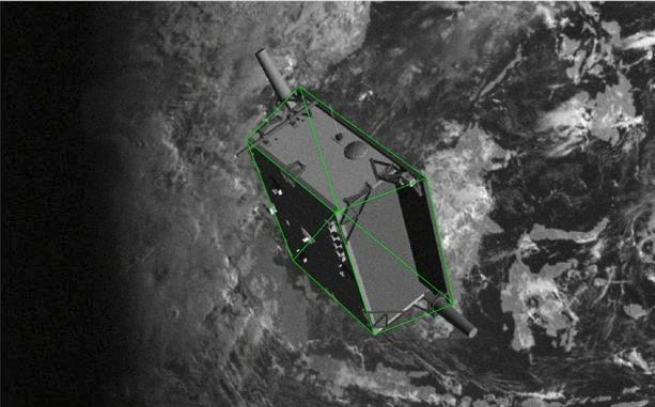AIML leader joins SmartSat CRC to boost research, industry uptake
Posted October 10, 2020

An international leader in space applications for artificial intelligence (AI), based at Lot Fourteen, will help build Australia’s largest dedicated research group for this nation-building technology in a new role for the SmartSat Cooperative Research Centre, also based at Lot Fourteen.
SmartSat has announced a $20m investment with partner universities to develop space technologies and build national capability in the areas of artificial intelligence, optical communications and cyber security.
Space and hi-tech are two of the high-value focus industry sectors at Lot Fourteen, building on South Australia’s strengths in these sectors.
Associate Professor Tat-Jun Chin of the University of Adelaide’s Australian Institute of Machine Learning at Lot Fourteen is among the first three professorial chairs to be announced under the SmartSat program, along with Professor Jill Slay of UniSA and Professor Christopher Fluke of Swinburne University.
The trio will form an R&D advisory group to refine the SmartSat research program in priority areas for space systems research and development and boost the translation of research for industry application.
The SmartSat Cooperative Research Centre brings together over 100 national and international partners who have invested over $190 million, along with $55 million in Federal Government funding under its Cooperative Research Centres Program, in a $245 million research effort over seven years.
Working closely with the Australian Space Agency, also based at Lot Fourteen, SmartSat will make a strong contribution to the Australian Government’s goal of tripling the size of the space sector to $12 billion and creating up to 20,000 jobs by 2030.
Priority industry sectors for SmartSat include telecommunications, agriculture and natural resources, transport and logistics mining, and defence and national security.
Deputy Vice-Chancellor and Vice-President (Research) of the University of Adelaide Professor Anton Middelberg, confirmed that Assoc Prof Tat-Jun Chin was an international leader in AI and machine learning for space applications.
“As a global leader, it is very appropriate Tat-Jun brings his extensive knowledge of advanced space system autonomy, intelligence and decision making, on-board machine learning and AI technology to SmartSat CRC,” Professor Middelberg said.
“The mandate of CRCs is to develop sustainable new industries. This requires the right people to fill future jobs and in addition to his global leadership, Tat-Jun brings the inspiration and mentorship to build a dedicated CRC activity to deliver next-generation space technologies.”

Associate Professor Tat-Jun Chin of Australian Institute of Machine Learning.
Assoc Prof Tat-Jun Chin is Professorial Chair of Sentient Spacecraft. In his role with SmartSat, he will seek industry partnerships to ensure timely transfer of the research outputs to industry. He led the team that won the global POSE challenge held by the European Space Agency and Stanford University last year, beating many international teams.
Winning the challenge, which was to use machine learning to estimate the relative position and attitude of a known spacecraft from individual grayscale images, cemented Assoc Prof Tat-Jun Chin as a global leader in his field.
Prof Jill Slay, who is Professorial Chair of Cyber Security at UniSA. Prof Slay, will be theme leader of SmartSat’s Cyber Security & Resilience program. Her expertise in cyber security and critical infrastructure protection teaching and research will strengthen links to leading international research centres and build capability this critical area.
Prof Christopher Fluke is the Professorial Chair of Space System Data Fusion and Cognition at Swinburne University and a leading international researcher in data-driven astronomy visualization. He will further develop capabilities in real-time, data-driven discovery and decision-making,
SmartSat Chief Executive Professor Andy Koronios said the appointment of the Professorial Chairs was a significant step towards growing Australia’s space capabilities and expertise and to strengthening international collaboration.
“We are thrilled to announce the appointment of these outstanding Professorial Chairs who will grow SmartSat’s national knowledge network and extend important existing international connections to our research programs,” Prof Koronios said.
He said a further six professorial chairs would l boost this first-of-its-kind space R&D initiative by SmartSat, with Australian National University, Sydney University, and the University of NSW also taking part, along with future appointments from University of South Australia.
“SmartSat is committed to attracting high calibre researchers who have strong track records in leading translational research and proven experience in contributing to Australia’s space research performance,” Prof Koronios said.
“We’re confident these Professorial Chairs will accelerate the progress of our research portfolios in vital areas for our space industry and for national security. “
Read more: https://smartsatcrc.com
Great things come to those who subscribe
Subscribe
"*" indicates required fields
Adelaide 5000
Developed by Frame Creative
Design by The Sideways Theory
Design by Sixth Street Design
Developed by Frame Creative
© Lot Fourteen All Rights Reserved

